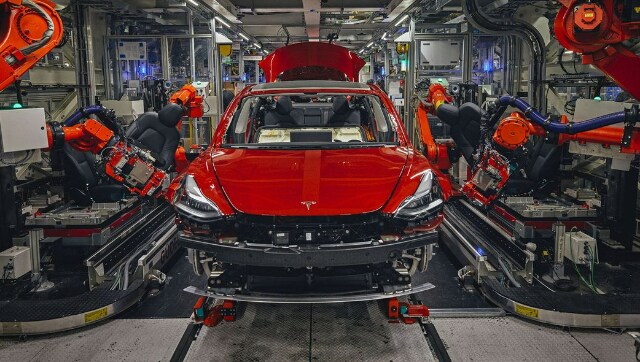
The latest earning reports from Tesla and TSMC predict a grim future for the tech industry all because of the US-China tech war. Revenue, earnings and profit margins are all set to go down substantially, a fact that has worried investors across the US and the EU
Tesla, TSMC and most tech manufacturing companies recently revealed their earning reports for the last quarter, and this has made investors a little jumpy. The latest earnings reveal that the tech sector is in for a really bad time, because of the US-China tech war
On Thursday, Swedish-Swiss multinational corporation ABB Ltd. issued a warning about slowing demand in China, one of its significant markets, reporting a 9 per cent decline in orders during the second quarter of the year. The company’s divisions in electrification, motion, and robotics all experienced reduced demand in the region. Similarly, TSMC and Tesla are in the same position.
ABB also faced decreased demand in Germany, indicating potential challenges in the broader industrial economy. ABB’s products, including motors, drives, controllers, and electrification solutions used in transport systems and factories, are often considered indicators of the overall health of the industrial sector.
Related Articles
These developments have caused concern among investors, who were hopeful that China’s decision to lift strict COVID-related restrictions at the end of the previous year would lead to an economic revival in the country. However, recent data showed that China’s economy grew at a fragile pace in the second quarter due to weakened demand both domestically and internationally, with post-COVID momentum diminishing rapidly.
In addition to ABB’s warning, Taiwanese chipmaker TSMC forecasted a 10 per cent drop in sales for 2023, attributing it to the global economic challenges that have affected the demand for chips used in various applications, including automobiles, cellphones, and servers.
Furthermore, several companies are grappling with the dilemma of maintaining profit margins after raising prices to counter the impact of soaring energy and raw material costs since the past year. As input costs are expected to ease, analysts caution that companies may be compelled to reduce prices to stay competitive, potentially affecting their bottom lines.
Tesla CEO Elon Musk also recently announced plans to cut prices on electric vehicles to shield against competition and uncertainties in the economic landscape, which had a negative impact on Tesla’s shares, declining nearly 4 per cent in pre-market U.S. trading. Overall, these developments are casting a shadow over the stock market, especially as the second-quarter earnings season unfolds. While European stocks regained some ground after early losses, S&P 500 and Nasdaq futures indicated lower openings.
“One day it seems like the world economy is falling apart, next day it’s fine. I don’t know what the hell is going on,” Musk told analysts on a conference call. “We’re in, I would call it, turbulent times.”
The recent corporate earnings results have set a pessimistic tone early in the earnings season. Consumer spending has been hindered by rising shopping and food expenses, along with high-interest rates, putting pressure on corporate profit margins.
Streaming video pioneer Netflix also contributed to the downbeat sentiment, as its second-quarter revenue fell short of analyst estimates, causing its shares to plummet by nearly 9 per cent in after-hours trading.
In the United States, earnings are predicted to fall by 8.2 per cent, which is a notable decline from the 0.2 per cent growth recorded in the first quarter and a significant reversal from the 8.4 per cent growth observed a year ago. Similarly, revenue is expected to decline by 0.8 per cent in the second quarter, down from the 13.6 per cent growth experienced a year ago.
Overall, these figures indicate a challenging economic environment, with a slowdown in corporate earnings and revenue growth compared to previous quarters and years. The ongoing impact of the pandemic, rising costs, and other economic factors are contributing to the subdued performance in the corporate sector.











